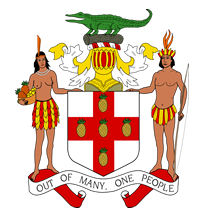Natural Resources Conservation (Permits and Licences) (Amendment) Regulations 2015 (G.N. 51C of 2015).
Resource information
Date of publication
April 2015
Resource Language
ISBN / Resource ID
LEX-FAOC169362
License of the resource
Copyright details
© FAO. FAO is committed to making its content freely available and encourages the use, reproduction and dissemination of the text, multimedia and data presented. Except where otherwise indicated, content may be copied, printed and downloaded for private study, research and teaching purposes, and for use in non-commercial products or services, provided that appropriate acknowledgement of FAO as the source and copyright holder is given and that FAO's endorsement of users' views, products or services is not stated or implied in any way.
These Regulations amend the Natural Resources Conservation (Permits and Licences) Regulations 1996 by replacing regulation 3 relating to a grant of a permit to undertake an enterprise, construction or development of a prescribed description or category and by inserting new regulations (7A-D) on the grant of a renewal of a permit. Amendment are also made to the Fist Schedule (Forms) and regulation 24 and Schedule 2 (fees).
Amends: Natural Resources Conservation (Permits and Licences) Regulations 1996. (2000)



